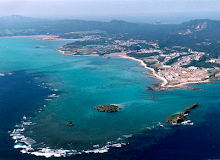 For the second year in a row during the first weekend of April, amidst cherry blossoms at their peak and near-perfect (if slightly chilly) weather, the Spring Love Harukaze festival transformed Yoyogi Park into a space of positive energy and peaceful vibes. The event featured some of Japan’s top musical talent, as well as a series of talk sessions related to various peace and environmental issues. In addition, the festival included a flea market with natural and eco-related goods, food stalls with organic and various world cuisines, tents with information from peace and environmental NPOs/NGOs, a DJ tent where young dancers enjoyed chilled-out grooves, and various jam sessions/performances spontaneously organized by festival-goers that seemed to crop up all over the venue throughout the weekend.
For the second year in a row during the first weekend of April, amidst cherry blossoms at their peak and near-perfect (if slightly chilly) weather, the Spring Love Harukaze festival transformed Yoyogi Park into a space of positive energy and peaceful vibes. The event featured some of Japan’s top musical talent, as well as a series of talk sessions related to various peace and environmental issues. In addition, the festival included a flea market with natural and eco-related goods, food stalls with organic and various world cuisines, tents with information from peace and environmental NPOs/NGOs, a DJ tent where young dancers enjoyed chilled-out grooves, and various jam sessions/performances spontaneously organized by festival-goers that seemed to crop up all over the venue throughout the weekend.Spring Love website:
www.balance-web.com/harukaze/ (Japanese)
Event on Facebook (English)

The event featured two stages: the main Spring Stage, where most musical acts and peace talks took place; and the smaller, cozier Love Stage, which housed DJs, smaller musical acts, and presentations from representatives of several of the NPOs and NGOs in attendance. One such group was US for Okinawa, made up mostly of foreign residents in Japan who are committed to demonstrating their support for a base-free Okinawa. In addition to introducing themselves on the Love Stage, the group organized a booth at the event with a photo exhibition, FAQ sheetFlier-Why%20Bases%20Don%27t%20Protect%20Japan.Jp.pdf, and petition all aimed at making clear the destructive impact of U.S. military bases. Coincidentally, many of the network's core members were actually on a study tour to visit U.S. bases in Okinawa on the very same weekend as Spring Love—their report of their very fruitful tour may be read here.

PHOTOS FROM OUR FRIENDS AND SUPPORTERS

Ann Wright and Medea Benjamin at the Senate hearing on Pacific command, with signs of "Out of Okinawa"







